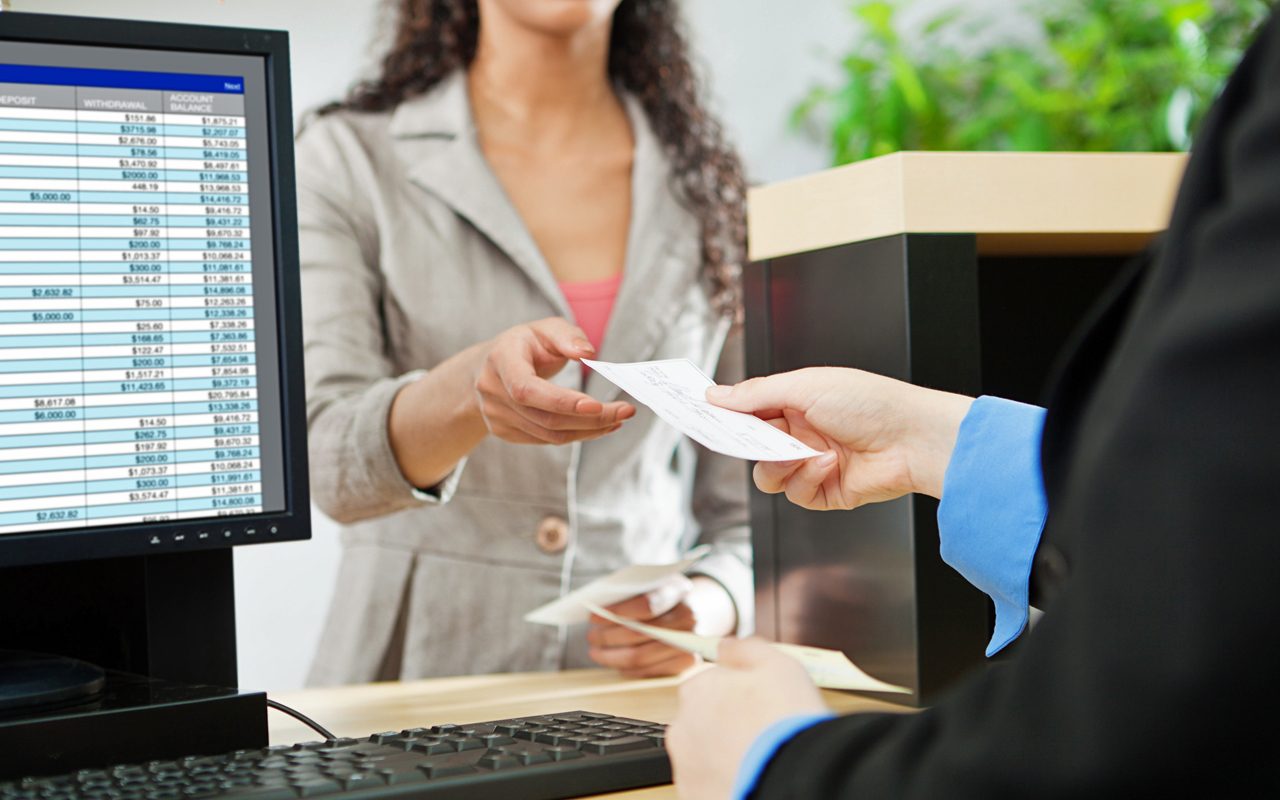17 Pesky Travel, Dining and Shopping Fees and How to Avoid Them
Don’t get ambushed by extra charges when you’re traveling, dining out or shopping.
Rachael Green
Profit and prosper with the best of Kiplinger's advice on investing, taxes, retirement, personal finance and much more. Delivered daily. Enter your email in the box and click Sign Me Up.
You are now subscribed
Your newsletter sign-up was successful
Want to add more newsletters?

Delivered daily
Kiplinger Today
Profit and prosper with the best of Kiplinger's advice on investing, taxes, retirement, personal finance and much more delivered daily. Smart money moves start here.

Sent five days a week
Kiplinger A Step Ahead
Get practical help to make better financial decisions in your everyday life, from spending to savings on top deals.

Delivered daily
Kiplinger Closing Bell
Get today's biggest financial and investing headlines delivered to your inbox every day the U.S. stock market is open.

Sent twice a week
Kiplinger Adviser Intel
Financial pros across the country share best practices and fresh tactics to preserve and grow your wealth.

Delivered weekly
Kiplinger Tax Tips
Trim your federal and state tax bills with practical tax-planning and tax-cutting strategies.

Sent twice a week
Kiplinger Retirement Tips
Your twice-a-week guide to planning and enjoying a financially secure and richly rewarding retirement

Sent bimonthly.
Kiplinger Adviser Angle
Insights for advisers, wealth managers and other financial professionals.

Sent twice a week
Kiplinger Investing Weekly
Your twice-a-week roundup of promising stocks, funds, companies and industries you should consider, ones you should avoid, and why.

Sent weekly for six weeks
Kiplinger Invest for Retirement
Your step-by-step six-part series on how to invest for retirement, from devising a successful strategy to exactly which investments to choose.
Americans lose billions of dollars every year to stealthy fees that are added to bills for everything from airline seats to concert tickets.
These so-called junk fees have been targeted by the Consumer Financial Protection Bureau (CFPB), which has been rolling out new rules to rein in excessive and unnecessary charges.
Now that the Trump administration aims to shutter the CFPB, consumers may have to be more vigilant about spotting (and avoiding) sneaky fees.
From just $107.88 $24.99 for Kiplinger Personal Finance
Become a smarter, better informed investor. Subscribe from just $107.88 $24.99, plus get up to 4 Special Issues

Sign up for Kiplinger’s Free Newsletters
Profit and prosper with the best of expert advice on investing, taxes, retirement, personal finance and more - straight to your e-mail.
Profit and prosper with the best of expert advice - straight to your e-mail.
Here are steps you can take to minimize those extra fees or skip them altogether.
How to avoid fees at the airport
Airline seat-selection fees
Typical amount: $10 to $50 for standard seats; $20 to $100 or more for seats with extra legroom or in preferred locations, such as at the front of the plane or in exit rows
Southwest Airlines recently announced that it is shifting from an open seating policy to assigned seats and seats for purchase — the model other major airlines use.
The primary way to avoid a seat-selection fee is to opt out of choosing a seat. But if you're traveling with friends or family and want to sit together, you'll need to purchase a ticket that includes seat selection.
With the exception of budget airlines like Spirit, most major airlines include some degree of seat selection with main-cabin tickets. You’ll usually have your pick of many seats on the plane, especially if you book well ahead of time.
However, you may still have to pay extra for the most desirable seats. And if you book a basic economy fare, fees are usually unavoidable if you want to choose where you sit.
Some airlines, including American and JetBlue, guarantee that parents can sit next to their children on a flight at no extra charge. With others, family members who want to be sure that they’ll be seated together have to book tickets that include seat selection or pay fees to choose their seats.
If you're traveling with kids, check the U.S. Department of Transportation's Airline Family Seating Dashboard. The department created this central hub to make it easier for flyers to compare family seating policies across major airlines at a glance.
If you've already booked a flight with a carrier that has no family seating guarantee and you don’t want to pony up for seat selection, try asking to be seated with your family at the gate before boarding the plane.
Airline baggage fees
Typical amount: $25 to $35 for first checked bag; $50 to $150 each for additional checked baggage. One checked bag per ticket is typically included with the fare for an international flight; additional fees for international flights vary widely.
After Southwest ditched its free checked bag policy earlier this month, there are officially no domestic airlines left that allow you to check your bag for free.
You can usually avoid checked baggage fees by packing everything you need in a carry-on and a personal item that fits underneath the seat in front of you.
However, some airlines, including JetBlue and United, do not include a free carry-on bag with basic economy tickets.
Some credit cards that are co-branded with airlines — including Delta SkyMiles Gold American Express ($150 annual fee, waived the first year), United Explorer ($95, waived the first year) and Citi/AAdvantage Platinum Select World Elite ($99, waived the first year) — offer a free checked bag as a perk.
And if you have elite status with an airline, you can often check bags at no extra charge.
In-flight Wi-Fi fees
Typical amount: $8 to $10
Overall, in-flight Wi-Fi has gotten faster, better and less expensive, says Sean Cudahy, aviation reporter for travel website The Points Guy.
JetBlue has offered free Wi-Fi for years. Delta Air Lines plans to have free Wi-Fi on most of its domestic mainline flights by the end of 2024 and on most international and regional flights by the end of 2025. You need a Delta SkyMiles account to access it, but there’s no charge to join.
If you’re flying with an airline that charges for Wi-Fi, see whether your credit card will reimburse or discount the fees. For example, the United Quest card ($250) offers up to $125 in statement credits each year for United purchases you make with the card, including in-flight Wi-Fi.
How to avoid other travel fees

Hotel resort fees
Typical amount: $20 to $50 per night
About 6% of hotels and resorts charge resort fees, according to the American Hotel and Lodging Association.
These properties — which are typically located in cities that are popular with tourists, such as Las Vegas, Miami and Orlando — tack on the charges to cover amenities such as Wi-Fi and access to a fitness center.
At ResortFeeChecker.com, you can look up properties to see how much they charge. If you don’t expect to use the amenities the fee covers, ask the hotel to remove it from your bill.
Hilton and Hyatt hotels waive the fee if you book a stay with loyalty rewards points or a free-night award.
Rental car insurance
Typical amount: Between $13 and $30 per day
If you own a car, you likely don’t need additional insurance when you rent a car in the U.S. because your own auto insurance policy will cover loss or damage to the rental car.
However, if your personal auto policy lacks collision and comprehensive insurance, your rental car may be underinsured in an accident or mishap.
For travel both inside and outside of the U.S., you might be covered if you pay for the reservation with a credit card that offers rental car insurance, although most cards exclude Italy, Ireland, Northern Ireland, Australia, Israel, Jamaica and New Zealand.
Chase Sapphire Preferred ($95) and Chase Sapphire Reserve ($550) offer some of the strongest car-rental benefits among credit cards.
Additional driver fees
Typical amount: $5 to $15 per person, per day
Many rental car companies charge a fee to allow someone other than the person listed on the contract to drive the car.
But some, including Dollar, Hertz, Sixt and Thrifty, don’t charge this fee if the other driver is a spouse or domestic partner who is also a member of their loyalty or rewards programs.
Avis and Budget waive the fee for Costco Wholesale members who rent through Costco Travel. Alamo and Enterprise don’t charge the fee at all in the U.S., Canada, the U.K., France, Germany, Ireland and Spain.
Foreign transaction fees
Typical amount: 1% to 3% of the transaction amount
When you make a purchase with a merchant outside the U.S. or withdraw money from an ATM abroad, you’re often subject to a foreign-transaction fee. Recently, Uber even added 1.5% fee to its app when ordering a ride somewhere that uses a different currency than your home country.
In the Uber app, you'll need to set your currency preferences to "no preferred currency" to avoid the extra charge.
For everything else, use a debit or credit card with no foreign-transaction fees to avoid the added costs on every transaction.
Many travel-focused credit cards offer this perk, and Capital One and Discover don’t charge the fee on any of their credit cards.
Among checking accounts, customers who use Schwab Bank Investor Checking or Capital One 360 Checking don’t pay foreign-transaction fees when they use their debit cards.
One more tip: If a merchant abroad asks whether you’d like to pay in U.S. dollars or in the local currency, always choose the local currency.
If you don't, you’ll likely be charged a dynamic currency conversion fee, which is typically higher than a standard foreign transaction fee because you are being charged for the convenience of paying in your home currency.
How to avoid dining and entertainment fees

Food-delivery fees
Typical amount: Delivery fees range from about $2 to $8, and you may pay a service charge of 15% to 30%, too
You’ll pay extra for the convenience of having services such as DoorDash, Grubhub and Uber Eats deliver restaurant meals to your doorstep.
You may be able to dodge delivery fees by searching for deals in the “offers” section of the delivery service’s app. Restaurant chains such as Cheesecake Factory and Jimmy John’s, for example, offer free delivery when you place your first order with them on DoorDash.
If you order takeout frequently, consider joining a subscription plan such as DashPass, Grubhub+ or Uber One (all are $9.99 a month), which waive the delivery fee on eligible orders.
Sometimes, you may be able to get these subscription plans for free if you have the right credit card or membership. Amazon Prime members, for example, can use GrubHub+ free. Some Chase credit cards provide a free DashPass subscription.
Otherwise, ordering food directly from restaurants’ apps and websites may help you skip extra fees. Applebee’s delivers food free if your order totals at least $40, for example, and McDonald’s provides free delivery for new users of the McDonald’s app.
Peer-to-peer transfer fees
Typical amount: 3% of the amount transferred to send money with a credit card; about 0.5% to 1.75% for an instant transfer from the app to your bank account
Peer-to-peer payment apps, such as Cash App, Venmo and Zelle make it remarkably easy to transfer money to friends and family — say, to split the bill after a dinner out.
However, if you use a credit card to send money through a payment app, you’ll often pay a fee of about 3%.
You can usually skip the fee by transferring funds directly from your bank account or debit card (note, however, that PayPal charges a fee for debit card transfers).
When your friends send money to you, be aware that an instant transfer from the app balance to your bank account costs extra in most cases. If you’re not in a hurry, use a standard transfer instead — it may take one to three business days for the funds to reach your bank account, but you pay no fee.
One exception: Zelle allows customers of participating banks to send money instantly to each other’s checking accounts — even among different institutions — typically for free.
Ticket convenience fees
Typical amount: An average 27% of the ticket price, according to the Government Accountability Office
Ticketmaster, StubHub and other online sellers of tickets for concerts, movies and other events often charge service or convenience fees, as well as a facility charge to cover the venue’s costs. If you resell a ticket on Ticketmaster’s platform, you’ll pay a resale fee, too.
Try buying tickets directly from the venue’s box office instead. It may be less convenient than purchasing tickets online, but you’ll likely pay less in fees.
How to avoid credit card fees

Late-payment fees
Typical amount: An average of $32, according to the Consumer Financial Protection Bureau
Credit card companies usually charge a late fee if you fail to make the minimum bill payment by the due date.
To avoid paying late, set up automatic payments to at least cover the minimum payment due. You can always make extra payments later to pay off the balance. If you don't like the idea of autopay, put a monthly reminder on your calendar.
If you miss a payment, call your card issuer and ask to remove the fee, says Ted Rossman, senior industry analyst at Bankrate. A 2024 LendingTree survey found that 89% of cardholders who asked their card company to waive a late fee were successful.
As a policy, some issuers, such as Discover, will waive the fee the first time you make a late payment. But missing a payment by 30 or more days will likely hurt your credit score, so you shouldn’t make a habit of it.
Annual fees
Typical amount: $105, according to the CFPB
Some credit cards charge an annual fee in exchange for rewards that are more plentiful than those you’d get with a no-fee card, such as travel perks or extra cash back, points or miles on certain purchases.
Before signing up for a card with an annual fee, make a list of the perks you'll actually use. Then, do the math to decide whether the value of your card’s rewards outweigh the annual fee. If they don’t, switch to a card that charges no annual fee.
Another idea: Try asking the issuer to remove the fee for one year, Rossman suggests. If you’re a long-term cardholder and pay your bills on time, you may have better odds of getting the fee waived, he says.
Cash-advance fees
Typical amount: The greater of 3% to 5% of the transaction amount or $10
A cash advance is a quick way to tap into your credit line if you need to get cash in a pinch, but you’ll typically pay a hefty fee for the convenience. Worse, interest starts to accrue immediately. Whenever possible, withdraw cash from your bank account instead.
Likewise, if your card issuer mails you convenience checks, don’t use them, says Matt Schulz, chief credit analyst for LendingTree. If you cash one of these checks, it will likely be treated as a cash advance, which means you’ll pay fees and higher interest rates on the money.
Surcharges for credit card purchases
Typical amount: 1.5% to 3.5% of the transaction, according to Bankrate
While the practice is illegal in a few states, most states allow restaurants, gas stations and retailers impose a surcharge when customers pay with a credit card.
The surcharge is meant to cover the payment processing fees that merchants pay to card networks each time a customer uses a credit card.
Depending on where you are, you'll either see a notice of how much extra you'll pay for using a credit card or you'll see a "cash discount" price — the lower price you'll pay if you use cash or a debit card.
If you're unsure what a particular merchant's policy is, you can either ask or just pay with cash or a debit card instead. According to rules established by card issuers like Visa and Mastercard, businesses can’t charge you extra for using a debit card.
How to avoid banking fees

Overdraft fees
Typical amount: About $35
If you overdraw your checking account, your bank may hit you with a costly overdraft fee.
You can opt out of overdraft protection to avoid the fee. But, if you do, be aware that if you attempt a debit card purchase that would cause your account balance to go into the red, it may be declined.
Another way to circumvent overdraft fees is to link your checking to your savings account. If you make a payment and there are insufficient funds in your checking account, the funds can be automatically withdrawn from your savings account. Call your bank first to see if it offers this service and, if so, what specific steps you need to take to set it up.
While some financial institutions impose a fee for these transfers — often of $10 to $12 — it’s significantly cheaper than a $35 overdraft charge.
ATM out-of-network fees
Typical amount: An average $4.73 in combined charges from the bank and the ATM’s owner, according to Bankrate
When you use an out-of-network ATM, your bank may hit you with a fee, and the ATM operator will likely charge you, too.
You can beat the charges by limiting withdrawals to ATMs within your bank’s network. Your bank may operate its own machines, participate in a broad network such as Allpoint or MoneyPass, or both.
If you can’t find an in-network ATM, you may be able to sidestep ATM fees by making a debit card purchase with a merchant and asking for cash back. Many stores will do this for free, but some charge up to about $3.
A final option: Use a checking account that reimburses you the fees for using out-of-network ATMs. Axos Bank, for example, provides unlimited domestic ATM rebates with its CashBack and Rewards checking accounts.
Account maintenance fees
Typical amount: For interest-bearing checking accounts, an average $15.33, according to Bankrate; $5.31 for checking accounts that don’t pay interest
The easiest way to skip monthly maintenance fees is to open an account that doesn’t charge them. Several online banks offer free accounts. Ally Bank, for example, charges no monthly fee on its checking, savings or money market deposit accounts.
If your account does levy maintenance fees, you may be able to bypass them by meeting certain requirements, such as keeping a specified minimum balance or making a certain amount in monthly direct deposits.
Note: This item first appeared in Kiplinger Personal Finance Magazine, a monthly, trustworthy source of advice and guidance. Subscribe to help you make more money and keep more of the money you make here.
Related content
Profit and prosper with the best of Kiplinger's advice on investing, taxes, retirement, personal finance and much more. Delivered daily. Enter your email in the box and click Sign Me Up.

Emma Patch joined Kiplinger in 2020. She previously interned for Kiplinger's Retirement Report and before that, for a boutique investment firm in New York City. She served as editor-at-large and features editor for Middlebury College's student newspaper, The Campus. She specializes in travel, student debt and a number of other personal finance topics. Born in London, Emma grew up in Connecticut and now lives in Washington, D.C.
- Rachael GreenPersonal finance eCommerce writer
-
 Stocks Sink With Alphabet, Bitcoin: Stock Market Today
Stocks Sink With Alphabet, Bitcoin: Stock Market TodayA dismal round of jobs data did little to lift sentiment on Thursday.
-
 Betting on Super Bowl 2026? New IRS Tax Changes Could Cost You
Betting on Super Bowl 2026? New IRS Tax Changes Could Cost YouTaxable Income When Super Bowl LX hype fades, some fans may be surprised to learn that sports betting tax rules have shifted.
-
 How Much It Costs to Host a Super Bowl Party in 2026
How Much It Costs to Host a Super Bowl Party in 2026Hosting a Super Bowl party in 2026 could cost you. Here's a breakdown of food, drink and entertainment costs — plus ways to save.
-
 How Much It Costs to Host a Super Bowl Party in 2026
How Much It Costs to Host a Super Bowl Party in 2026Hosting a Super Bowl party in 2026 could cost you. Here's a breakdown of food, drink and entertainment costs — plus ways to save.
-
 3 Reasons to Use a 5-Year CD As You Approach Retirement
3 Reasons to Use a 5-Year CD As You Approach RetirementA five-year CD can help you reach other milestones as you approach retirement.
-
 How to Watch the 2026 Winter Olympics Without Overpaying
How to Watch the 2026 Winter Olympics Without OverpayingHere’s how to stream the 2026 Winter Olympics live, including low-cost viewing options, Peacock access and ways to catch your favorite athletes and events from anywhere.
-
 Here’s How to Stream the Super Bowl for Less
Here’s How to Stream the Super Bowl for LessWe'll show you the least expensive ways to stream football's biggest event.
-
 The Cost of Leaving Your Money in a Low-Rate Account
The Cost of Leaving Your Money in a Low-Rate AccountWhy parking your cash in low-yield accounts could be costing you, and smarter alternatives that preserve liquidity while boosting returns.
-
 This Is How You Can Land a Job You'll Love
This Is How You Can Land a Job You'll Love"Work How You Are Wired" leads job seekers on a journey of self-discovery that could help them snag the job of their dreams.
-
 We Inherited $250K: I Want a Second Home, but My Wife Wants to Save for Our Kids' College.
We Inherited $250K: I Want a Second Home, but My Wife Wants to Save for Our Kids' College.He wants a vacation home, but she wants a 529 plan for the kids. Who's right? The experts weigh in.
-
 4 Psychological Tricks to Save More in 2026
4 Psychological Tricks to Save More in 2026Psychology and money are linked. Learn how you can use this to help you save more throughout 2026.

